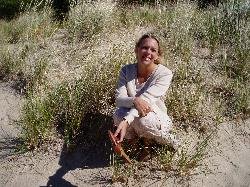Celebrating 200 Years
2007 marks the 200 year anniversary of the abolition of the slave trade in Britain.
To commemorate the bicentennial of this event, Bristol Bay Productions is releasing Amazing Grace, a film chronicling the personal and political struggles endured by Wilberforce on behalf of his 20-year battle against slavery. Throughout the UK and US, events will pay tribute to William Wilberforce’s legacy to freedom and humanity.
Meet William Wilberforce
Harriet Beecher Stowe praised him in the pages of Uncle Tom’s Cabin. Novelist E. M. Forester compared him to Gandhi. Abraham Lincoln invoked his memory in a celebrated speech. In the houses of Parliament, Nelson Mandela recalled his tireless labors on behalf of the sons and daughters of Africa, calling Britain "the land of William Wilberforce—who dared to stand up to demand that the slaves in our country should be freed." The cat in residence at 10 Downing Street between 1973 and 1987 quickly earned a "Wilberforce-ian" reputation for catching mice, and as such was given the name Wilberforce and served under four prime ministers.
William Wilberforce (1759-1833) led the twenty-year fight to end the British slave trade, a victory now regarded as He finally succeeded in March 1807 and continued to fight for abolition until, days before his death in 1833, he saw the institution of slavery abolished throughout the British colonies. Not limiting himself to just abolitionist work, he dedicated his life to what he called his "two great objects:" abolishing slavery in the British Empire and what he called "the reformation of manners [society]." To this end, he advocated for child labor laws, campaigned for education of the blind and deaf, and founded organizations as diverse as the Royal Society for the Prevention of Cruelty to Animals (RSPCA) and the National Gallery (of Art). "Good causes," it has been said, "stuck to him like pins to a magnet."
John Newton (1725- 1807)As the son of a captain, John Newton began his seafaring when he was forced to join the Royal Navy at the young age of 11. After discharge from the Royal Navy, he joined Britain’s prosperous slave trade until a near-death experience in Sierra Leone changed his life forever. As a result, he left the slave trade and converted to Christianity in 1748. Sixteen years later, he was ordained as a priest at Olney Parish Church, the same year he published an account of his experiences in his autobiography, An Authentic Narrative. It was this great change in his life that inspired him to write the lyrics to Amazing Grace in 1772. Upon reflection, Newton declared that, "only God's amazing grace could and would take a rude, profane, slave-trading sailor and transform him into a child of God."
William Wilberforce first met John Newton as a child when Newton was the pastor at Wilberforce's church. In his twenties, on the brink of a career as a British MP, Wilberforce became re-acquainted with Newton. Wilberforce sought Newton's counsel at several important turning points during his time in Parliament. On one such occasion, in 1785, Wilberforce visited Newton at St. Mary Woolnoth Church in London. Deeply discouraged by political life, Wilberforce asked Newton if he should leave politics to join the clergy. Newton advised Wilberforce that he had been placed in his role as a Member of Parliament to abolish the slave trade. It was in the House of Commons, Newton offered, that Wilberforce could best serve God. Wilberforce took Newton's advice and throughout the rest of his parliamentary career, Newton encouraged Wilberforce to "stay the course" and see his cause through to the end.
The Lyrics of the Song
Amazing Grace (How sweet the sound)
That sav'd a wretch like me!
I once was lost, but now am found,
Was blind, but now I see.'
Twas grace that taught my heart to fear,
And grace my fears reliev'd;
How precious did that grace appear,
The hour I first believ'd!
Thro' many dangers, toils and snare,
I have already come;
'Tis grace has brought me safe thus far,
And grace will lead me home.
The Lord has promised good to me.
His word my hope secures;
He will my shield and portion be,
As long as life endures.
Yes, when this flesh and heart shall fail,
And mortal life shall cease;
I shall profess, within the vail,
A life of joy and peace.
The earth shall soon dissolve like snow,
The sun forbear to shine;
But God, who call'd me here below,
Will be for ever mine.
The final stanza—‘When we’ve been there ten thousand years’—was added by Edwin Othello Excell in 1909 and was taken from another hymn.
"It's estimated that 27 million people are in slavery around the world"
The International Labor Organization (ILO) –the United Nations (UN) agency charged with addressing labor standards, employment and social protection issues—estimates that are 12.3 million people in forced labor, bonded labor, forced child labor, and sexual servitude at any given time; other estimates range from 4 million to 27 million.”
218 Million: Estimated number of children working aged between five and seventeen
To find out how you can help and
for the movie trailer go to http://www.amazinggracemovie.com/
Joelle
Mabey Memories
.
The desire of my heart is to become the person God dreams of and share those dreams with others; to unleash personal and corporate creativiy within the church, overflowing it with passion and freedom while searching for the face and character of God.

No comments:
Post a Comment